7 Black surgeons who've shaped medicine throughout history
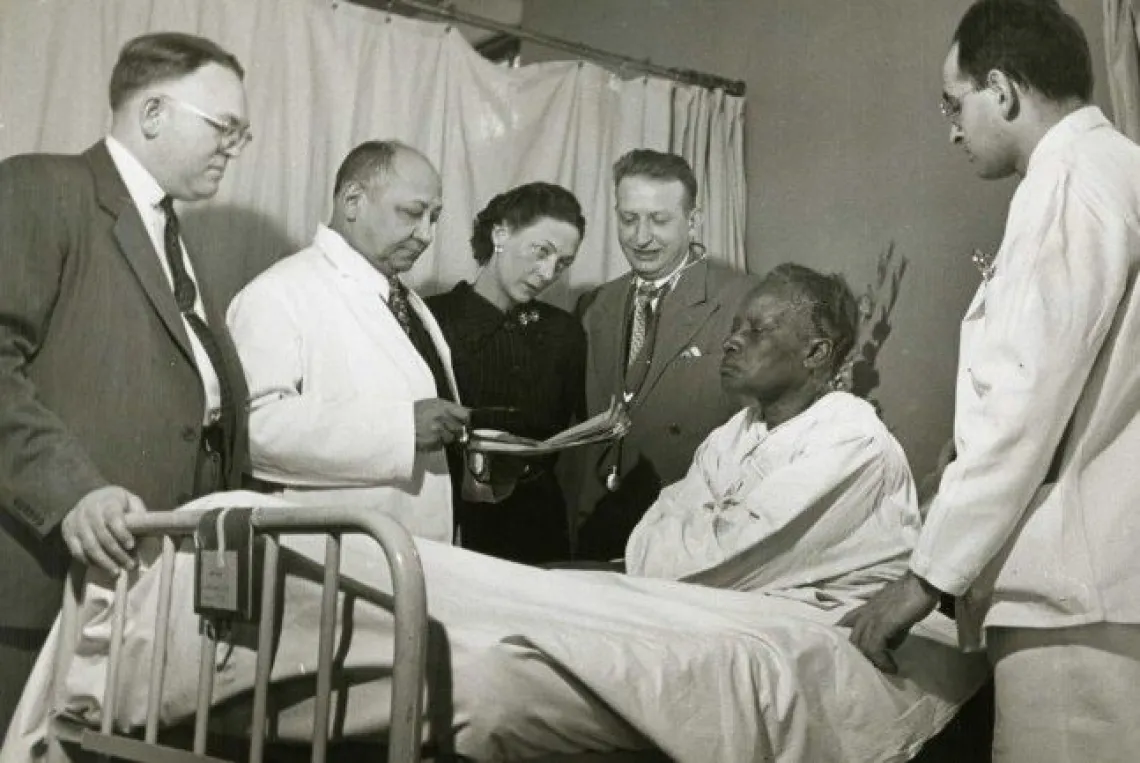
Every February we come together to honor Black History Month and the many accomplishments the African American community has contributed to our history. To celebrate this month, the Department of Surgery would like to acknowledge and remember past and current Black surgeons that have made an impact on the field of medicine.
First proposed by Black educators and Black United Students at Kent State University in 1969, the first celebration of Black History Month was in February 1970. Black History Month was finally recognized by President Gerald Ford in 1976, thus beginning annual nationwide celebrations for the month.
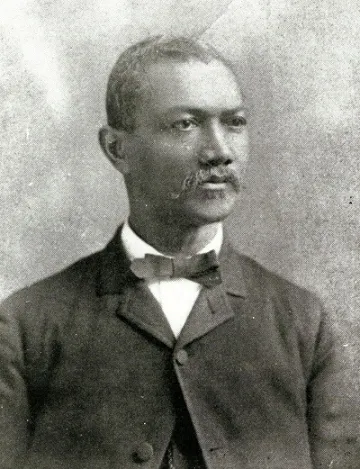
Dr. Alexander T. Augusta, MB, was the first Black professor of medicine in the U.S. Graduating and receiving his Bachelor of Medicine from the University of Toronto in 1856, Dr. Augusta went on to become a highly accomplished physician. He was the first African American to be commissioned as a medical officer in the Union Army. During his time in the army, he was surgeon-in-charge at Contraband Hospital in Washington, D.C., which served free Black people and former slaves. He went on to be the first Black head of a hospital in the U.S. when he was relocated to Camp Barker and was in charge of a newly created hospital for African Americans. After this, Dr. Augusta became the first Black professor of medicine in the U.S. as one of the original faculty members of Howard University’s Medical College in Washington, D.C.
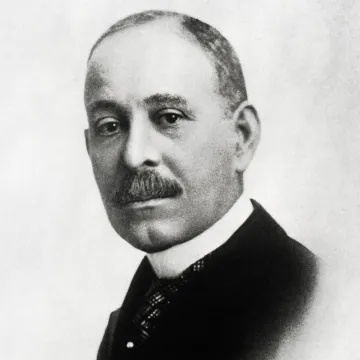
Before Dr. Daniel H. Williams, MD, there were no Black-owned hospitals or nursing schools to serve the African American community in Chicago. Dr. Williams studied medicine at Chicago Medical College and graduated with his Medical Degree in 1883, but after witnessing and experiencing the limited opportunities to train Black physicians and nurses in the city, he decided to create a place that would simultaneously educate Black providers and serve Chicago’s growing African American community. So in 1891, Dr. Williams founded the first Black-owned hospital in America, Provident Hospital and Training School for Nurses.
In addition to this amazing feat, Dr. Williams also performed one of the first successful heart surgeries, repairing a pericardium laceration caused by a stab wound in 1893.
Much of our knowledge about blood preservation and transfusion comes from Dr. Charles R. Drew, MD. Graduating with his MD in 1933 from McGill University School of Medicine, Dr. Drew paved the way for blood banks through his work during World War II. After becoming an instructor in surgery and an assistant surgeon at Freedman’s Hospital, Dr. Drew began his surgery fellowship at Columbia University while earning his Doctor of Medical Science, making him the first African American to earn that degree from Columbia.
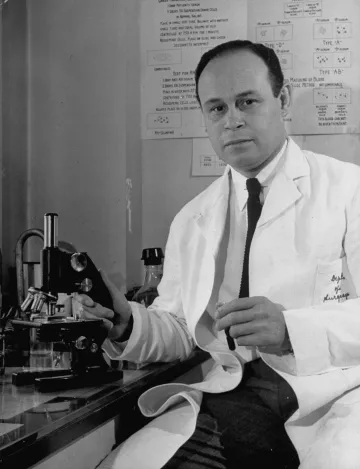
During his time at Columbia, Dr. Drew began researching blood preservation techniques, including novel methods of separating plasma from red blood cells that increased the shelf life of plasma to two months. Meanwhile, British troops overseas desperately needed blood and plasma to manage WWII casualties. Because of Dr. Drew's work, he was selected as the medical director of the new Blood for Britain project, successfully collecting and distributing tens of thousands of units of vital plasma to the British.
After his time with the Blood for Britain project, Dr. Drew then became the assistant director for a national blood banking pilot program partially sponsored by the American Red Cross, eventually developing innovations such as mobile blood donation stations what we now refer to as "bloodmobiles."
Dr. Myra A. Logan, MD, graduated from New York Medical College in 1933 with her MD and soon became an associate surgeon at Harlem Hospital. In 1943, Dr. Logan became the first woman to perform heart surgery, the ninth operation of its kind. In addition to the successful surgery, Dr. Logan became one of the first Black women to be elected as a fellow of the American College of Surgeons. She developed new antibiotics, and she worked on early methods of detection and treatment of breast cancer.
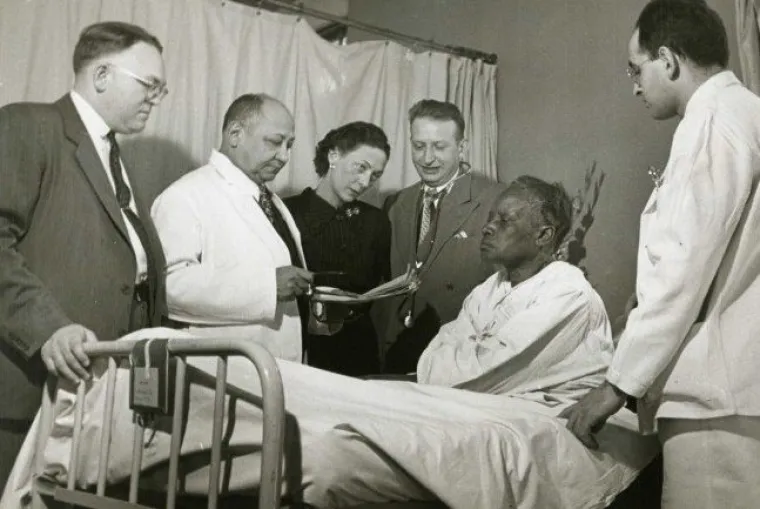
Cancer chemotherapy would not be where it is today if not for Dr. Jane C. Wright, MD. Dr. Wright attended New York Medical College and proceeded to graduate with honors in 1945. In 1949, she worked at the Cancer Research Foundation at Harlem Hospital alongside her father, Dr. Louis Wright - who himself was one of the first Black graduates of Harvard Medical School. There, she and her father performed patient trials and tested new chemicals on human leukemias and cancers of the lymphatic system.
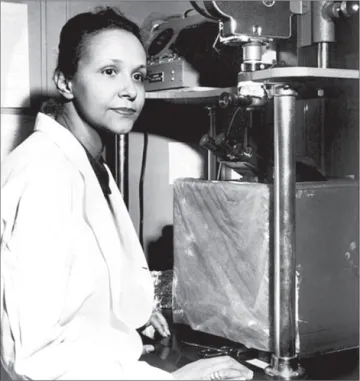
She continued her work on cancer chemotherapy research, and in 1955 she was named associate professor of surgical research at New York University as well as the director of cancer chemotherapy research at NYU Medical Center. In 1964, President Lyndon B. Johnson appointed Dr. Wright to the President's Commission on Heart Disease, Cancer, and Stroke. Three years later, she became professor of surgery, head of the cancer chemotherapy department, and associate dean at New York Medical College, making her the highest ranked Black woman at a nationally recognized medical institution.
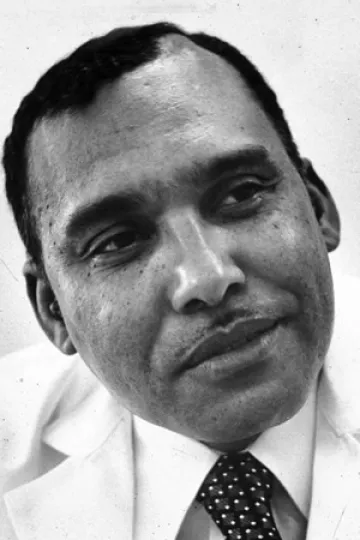
Dr. Samuel L. Kountz, MD, MS, was a pioneer in renal transplantation. He received his MS in biochemistry from the University of Arkansas and soon became the first African American admitted into the medical school there. He graduated and received his MD in 1958. In 1961, Dr. Kountz and Dr. Roy Cohn, another surgeon, performed the first successful kidney transplant between two people who were not twins. He went on to perform around 500 kidney transplants throughout his career, believed to be the most of any physician at that time.
Following his surgical residency, Dr. Kountz became a faculty member at Stanford University Hospital and Medical School. A year later in 1967, Dr. Kountz was recruited to be the chief of kidney transplant service at the University of California, San Francisco, and eventually in 1972 he was named chair of surgery at Downstate Medical Center in Brooklyn. Dr. Kountz’s research led to significant advancements in preventing and monitoring renal allograft rejection, along with donor tissue typing and preservation of donor kidneys.
To wrap up the list of amazing Black surgeons throughout our history, we want to acknowledge one of our own, Dr. Valentine N. Nfonsam, MD, MS, FACS, FASCRS. Graduating from the University of Illinois College of Medicine in 2003, Dr. Nfonsam is currently a professor of surgery and interim chief of the Division of Surgical Oncology. He led and transformed the General Surgery residency program at the University of Arizona - College of Medicine for nine years. Dr. Nfonsam is a member of the Board of Governors for the American College of Surgeons and was recently appointed as a counselor to the American Board of Surgery. Dr. Nfonsam is very focused on guiding, mentoring and sponsoring students, residents and faculty. He specializes in colon and rectal surgery, colorectal oncology, and complex floor disorders. His research is focused on colorectal cancer in young patients and on disparities in colorectal cancer outcomes. He is a leader, an educator, a surgeon scientist, but most of all a dedicated and compassionate physician.
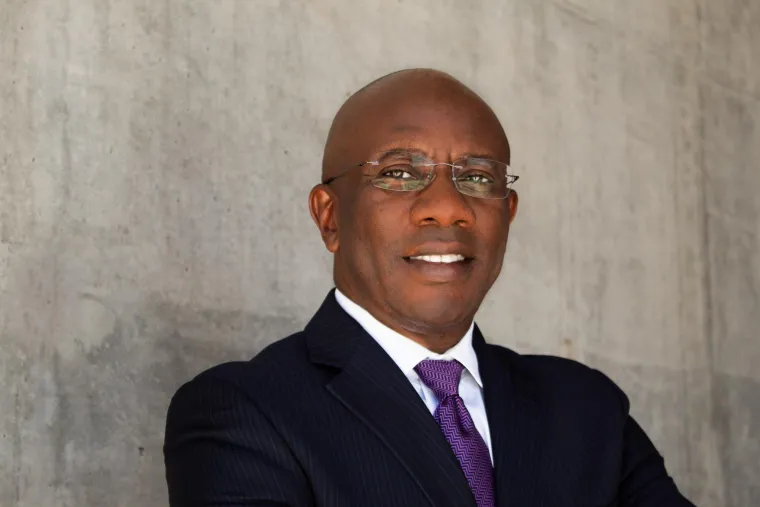
A huge thanks to all past, present, and future black surgeons. Without them the field of medicine would not be where it is today. Happy Black History Month from the Department Surgery!
Resources:
https://www.blackpast.org/african-american-history/augusta-alexander-t-1...
https://www.nps.gov/foth/learn/historyculture/alexander-augusta.htm
https://columbiasurgery.org/news/daniel-hale-williams-and-first-successf...
https://www.cdrewu.edu/about-cdu/about-dr-charles-r-drew
https://www.acs.org/content/acs/en/education/whatischemistry/african-ame...
https://www.nymc.edu/school-of-medicine-som/som-alumni-profiles/alumni-i...
http://www.allianceofminorityphysicians.org/logan-family.html
https://cfmedicine.nlm.nih.gov/physicians/biography_336.html/
https://www.nymc.edu/school-of-medicine-som/som-alumni-profiles/alumni-i...
https://www.blackpast.org/african-american-history/kountz-samuel-lee-jr-...
https://chaamp.virginia.edu/node/4146

